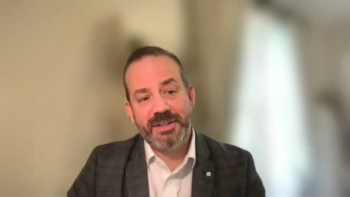
Jim O'Donoghue: The "Virtuous Circle" of Good Patient-Facing Technology
"We provide valuable services, patients provide more data...then we can better personalize and improve those services."
If health technology is developed in a way that breeds patient trust, they will pay it back in spades with high-quality data, argues Jim O'Donoghue.
O'Donoghue is the Vice President of S3 Connected Health, a company that designs patient-facing engagement services to resolve issues of therapy adherence. He spoke to Healthcare Analytics News™ during the Digital Pharma East conference in Philadelphia, beginning with how the ubiquity of the cell phone has fundamentally changed people's expectations of healthcare interactions. He cited the example of Google’s concept of “micro moments” in which people relate turn to their smartphones for comfort, reassurance, and information constantly throughout the day.
"The bar that patients have is that the services have to be as good as the services they receive in other industries, and that's the challenge, I think, for healthcare," he said. “It’s about being there when they’re asking questions like ‘Should I really continue taking this medication? How can I deal with these side effects?’”
The most important part, O’Donoghue says, is creating trust and helping a patient feel supported and understood. If a company is able to do that, they will reap the benefits through patient data that will enable them to continue to improve their tech.
“If we provide those valuable services…it’s a virtuous circle,” he said, “We provide valuable services, patients provide more data about the challenges they have and the context that they’re in, and then we can better personalize and improve those services.”





























































































